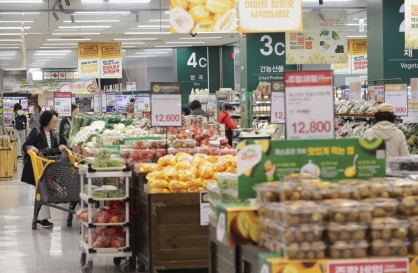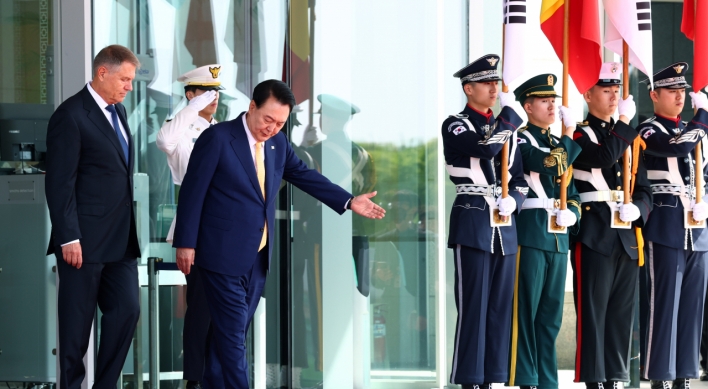[Jose Graziano Da Silva] Leveraging Korean know-how and partnerships for ‘Zero Hunger’ world
By Korea HeraldPublished : May 16, 2019 - 14:16
The Food and Agriculture Organization of the United Nations is highly focused on supporting countries to implement the 2030 Agenda for Sustainable Development and achieve the goals, particularly the SDG 2 -- eradicating hunger and all forms of malnutrition and promoting sustainable agriculture (the “Zero Hunger” goal).
For that, FAO and partners (other UN agencies, civil society, the private sector, farmers’ associations, academia and research institutions) are working closely with governments in order to transform agriculture and food systems. The main objectives are improving the livelihoods of family farmers and their communities, producing healthier and more nutritious food, as well as preserving the environment and biodiversity.
This work has increasingly brought FAO together with resource partners and specialists within the government of South Korea. And with good reason.
The country has made remarkable progress in recent decades -- in both nutritional and economic development. It’s scientific and technological advancements are second to none and the country is now considered a leading global player in technological innovation.
It has been a great partner for FAO, particularly by providing resources to fund development work abroad and by offering highly skilled human resources to help create and secure environmentally sustainable food systems, improved value chains, and innovations in information and communications technologies in agriculture.
Making this Korean know-how available to family farmers in the Asia-Pacific region will prove to be a great advancement along the road to a Zero Hunger world.
This month, FAO and the Korean government are opening an FAO Partnership and Liaison Office in Seoul. The new office will formally establish FAO’s presence in the country and help both the organization and the government work more closely in advancing our joint work to achieve the Sustainable Development Goals across the Asia-Pacific region.
The office couldn’t have come soon enough. That’s largely because of the race against time to reach Zero Hunger and improved nutrition worldwide in less than 12 years from now, but also because of the fact that hunger is on the rise again -- for a third year in a row. There are more than 820 million people suffering from hunger globally -- and nearly half a billion of them right here in the Asia-Pacific region. So we need every capable player doing their utmost to help in this time-bound struggle.
Furthermore, the world is witnessing alarmingly high and growing levels of obesity and micronutrient deficiency. More than 670 million adults are obese. The main reason is that the current food systems are not providing people with healthy food and nutrients that are necessary for a healthy life. People are eating badly more and more. The food challenges facing humanity nowadays are not only availability and accessibility. It is also about the quality of food.
Korea has a long history of applying traditional agricultural know-how at home and this has been recognized abroad as well. Two examples would be the terraced rice paddies on Cheongsan Island and farming within volcanic rock walls on Jeju Island. Both of these traditional and unique approaches have been recognized and awarded the status of FAO Globally Important Agricultural Heritage Systems.
Abroad, Korea has been working with FAO for quite some time already. Just last December it joined forces with FAO to provide emergency assistance to some 5 800 vulnerable farming families in two of the worst drought-affected provinces in Afghanistan, namely Ghor and Badghis.
Under the terms of this new agreement, rural families in these areas are expected to benefit from the project which will improve their food security through distribution of agricultural inputs such as certified seed and fertilizers and home gardening tools. They will also receive training on improved agriculture practices and ways to prepare for, and mitigate the effects of, climate and weather-related disasters. This will make them more resilient going forward.
This is why international development partnerships are so important. Eradicating hunger and all forms of malnutrition will not be easy. But the more we work together, the more we share our knowledge, the more we apply what we know works, the more confident we’ll become at delivering a Zero Hunger world.
Jose Graziano Da Silva
Jose Graziano Da Silva is the director-general of Food and Agriculture Organization of the United Nations. -- Ed.
For that, FAO and partners (other UN agencies, civil society, the private sector, farmers’ associations, academia and research institutions) are working closely with governments in order to transform agriculture and food systems. The main objectives are improving the livelihoods of family farmers and their communities, producing healthier and more nutritious food, as well as preserving the environment and biodiversity.
This work has increasingly brought FAO together with resource partners and specialists within the government of South Korea. And with good reason.
The country has made remarkable progress in recent decades -- in both nutritional and economic development. It’s scientific and technological advancements are second to none and the country is now considered a leading global player in technological innovation.
It has been a great partner for FAO, particularly by providing resources to fund development work abroad and by offering highly skilled human resources to help create and secure environmentally sustainable food systems, improved value chains, and innovations in information and communications technologies in agriculture.
Making this Korean know-how available to family farmers in the Asia-Pacific region will prove to be a great advancement along the road to a Zero Hunger world.
This month, FAO and the Korean government are opening an FAO Partnership and Liaison Office in Seoul. The new office will formally establish FAO’s presence in the country and help both the organization and the government work more closely in advancing our joint work to achieve the Sustainable Development Goals across the Asia-Pacific region.
The office couldn’t have come soon enough. That’s largely because of the race against time to reach Zero Hunger and improved nutrition worldwide in less than 12 years from now, but also because of the fact that hunger is on the rise again -- for a third year in a row. There are more than 820 million people suffering from hunger globally -- and nearly half a billion of them right here in the Asia-Pacific region. So we need every capable player doing their utmost to help in this time-bound struggle.
Furthermore, the world is witnessing alarmingly high and growing levels of obesity and micronutrient deficiency. More than 670 million adults are obese. The main reason is that the current food systems are not providing people with healthy food and nutrients that are necessary for a healthy life. People are eating badly more and more. The food challenges facing humanity nowadays are not only availability and accessibility. It is also about the quality of food.
Korea has a long history of applying traditional agricultural know-how at home and this has been recognized abroad as well. Two examples would be the terraced rice paddies on Cheongsan Island and farming within volcanic rock walls on Jeju Island. Both of these traditional and unique approaches have been recognized and awarded the status of FAO Globally Important Agricultural Heritage Systems.
Abroad, Korea has been working with FAO for quite some time already. Just last December it joined forces with FAO to provide emergency assistance to some 5 800 vulnerable farming families in two of the worst drought-affected provinces in Afghanistan, namely Ghor and Badghis.
Under the terms of this new agreement, rural families in these areas are expected to benefit from the project which will improve their food security through distribution of agricultural inputs such as certified seed and fertilizers and home gardening tools. They will also receive training on improved agriculture practices and ways to prepare for, and mitigate the effects of, climate and weather-related disasters. This will make them more resilient going forward.
This is why international development partnerships are so important. Eradicating hunger and all forms of malnutrition will not be easy. But the more we work together, the more we share our knowledge, the more we apply what we know works, the more confident we’ll become at delivering a Zero Hunger world.
Jose Graziano Da Silva
Jose Graziano Da Silva is the director-general of Food and Agriculture Organization of the United Nations. -- Ed.
-
Articles by Korea Herald



![[AtoZ into Korean mind] Humor in Korea: Navigating the line between what's funny and not](http://res.heraldm.com/phpwas/restmb_idxmake.php?idx=644&simg=/content/image/2024/04/22/20240422050642_0.jpg&u=)




![[Herald Interview] Why Toss invited hackers to penetrate its system](http://res.heraldm.com/phpwas/restmb_idxmake.php?idx=644&simg=/content/image/2024/04/22/20240422050569_0.jpg&u=20240422150649)

![[Graphic News] 77% of young Koreans still financially dependent](http://res.heraldm.com/phpwas/restmb_idxmake.php?idx=644&simg=/content/image/2024/04/22/20240422050762_0.gif&u=)




![[Exclusive] Korean military set to ban iPhones over 'security' concerns](http://res.heraldm.com/phpwas/restmb_idxmake.php?idx=652&simg=/content/image/2024/04/23/20240423050599_0.jpg&u=)



